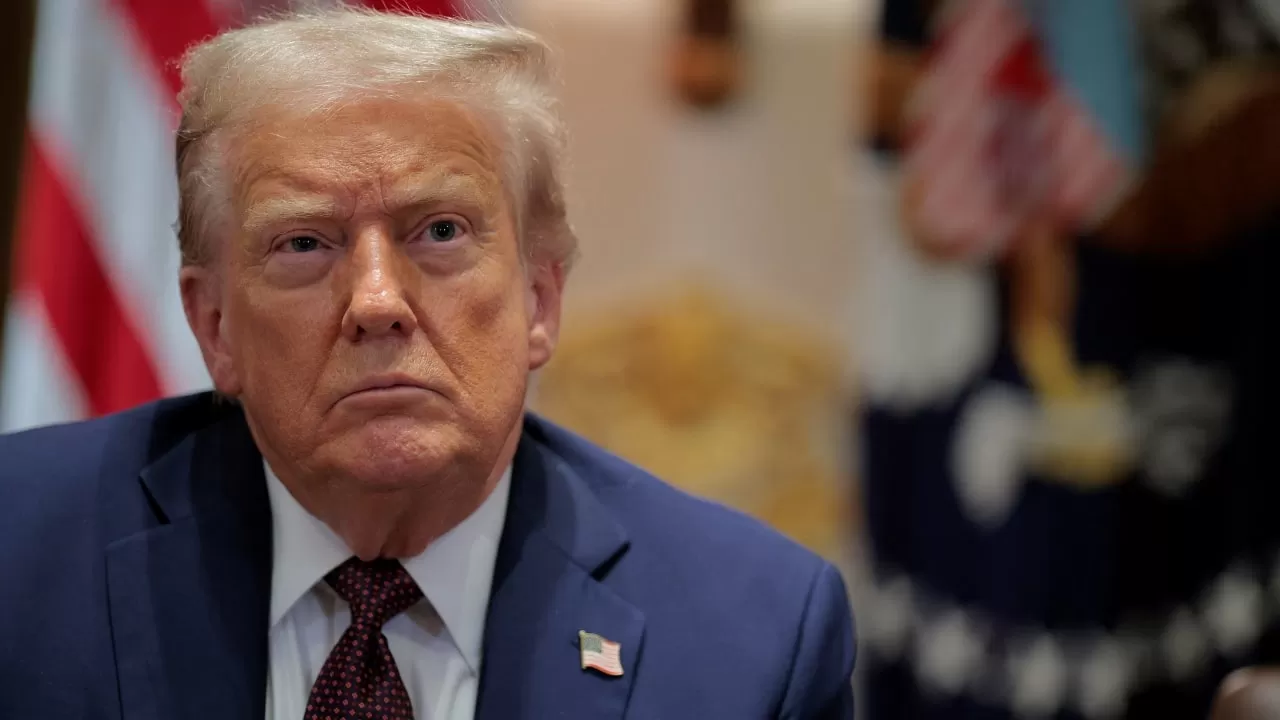The Geopolitical Chessboard: Trump's Stark Claim and the Shifting Global Order
Share- Nishadil
- September 06, 2025
- 0 Comments
- 3 minutes read
- 50 Views

Trump Declares "We've Lost India, Russia to China" Amidst Viral Image
Former President Donald Trump's bold assertion that the US has "lost India and Russia to China," accompanied by a striking image of Modi, Xi, and Putin, has ignited fresh debate on the evolving global power dynamics.
The digital world erupted recently as former US President Donald Trump took to his Truth Social platform, unleashing a statement that sent ripples across global diplomatic circles. Accompanying a powerful photograph featuring three of the world's most influential leaders – India's Prime Minister Narendra Modi, China's President Xi Jinping, and Russia's President Vladimir Putin – Trump's caption was stark: "Looks like we’ve lost India, Russia to China."
This provocative declaration immediately reignited the ongoing debate about the shifting sands of international alliances and the perceived weakening of Western influence.
The image itself, a compelling tableau of these powerful figures, served as a potent visual anchor for Trump's assertion, suggesting a formidable alignment that seemingly excludes traditional Western partners.
While the photograph in question likely stemmed from recent gatherings such as the Shanghai Cooperation Organisation (SCO) or BRICS summits, where these leaders naturally convene, Trump's interpretation thrust it into a new, highly charged narrative.
It posits a dramatic realignment, where two crucial geopolitical players – India, the world's largest democracy, and Russia, a nuclear superpower – are seen as gravitating firmly into China's orbit, away from the United States.
India, a nation fiercely proud of its strategic autonomy, has long navigated a complex geopolitical landscape, balancing its relationships with multiple global powers.
While maintaining robust ties with the United States, particularly through initiatives like the Quad – a strategic security dialogue with the US, Japan, and Australia – India has also steadfastly preserved its deep-rooted relationship with Russia, a partnership forged over decades, especially in defense and energy sectors.
The enduring India-Russia bond, visible even amidst Western sanctions against Moscow, underscores New Delhi's commitment to independent foreign policy.
This stance often puzzles Western observers who perceive it as a departure from an assumed alignment. India's reliance on Russian military hardware and energy resources forms a significant pillar of this relationship, demonstrating a pragmatic approach to its national interests.
Simultaneously, India's relationship with China is a delicate tightrope walk.
Despite ongoing border disputes, economic competition, and strategic rivalries, both nations are integral members of multilateral forums like BRICS and SCO, necessitating a degree of cooperation. Trump's statement, however, strips away this nuance, presenting a simplified, stark 'us vs. them' scenario.
From Trump's perspective, this perceived shift represents a significant strategic setback for the United States.
His "America First" doctrine often viewed international relations through a transactional lens, and any perceived loss of influence or alliance naturally triggers concern. The former President's comment reflects a deeper anxiety within certain US political circles about the rise of a multipolar world order and the challenges it poses to American unipolarity.
The reality, however, is far more intricate than a simple 'loss' or 'gain.' India's foreign policy is driven by its own national interests, not by pledges of exclusive allegiance to any single bloc.
Its participation in various groupings, whether with Western democracies or alongside Russia and China, is a testament to its aspiration for a balanced and influential role on the world stage. Trump's bold statement serves as a potent reminder of the ongoing, dynamic reconfiguration of global power, challenging established norms and forcing a re-evaluation of alliances in an increasingly complex international arena.
.Disclaimer: This article was generated in part using artificial intelligence and may contain errors or omissions. The content is provided for informational purposes only and does not constitute professional advice. We makes no representations or warranties regarding its accuracy, completeness, or reliability. Readers are advised to verify the information independently before relying on







